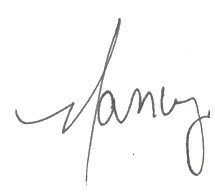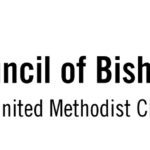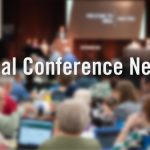At our recent General Conference, the body passed the Traditional Plan which toughens the stance against same-sex marriage and LGBTQ clergy and the penalties for defying them. I stayed up late one night writing some thoughts I felt compelled to share during the debate. There were so many people doing the same thing that many of us never got the opportunity to share them. You see my beliefs on this are also grounded in Scripture. So, I would like to share these thoughts with you:
In the book of Acts, Luke describes a situation much like this one. The names were different, but the issue was the same; do we open up ministry and leadership to people who evidence the spirit but have traditionally been excluded? God’s original covenant was with the Jewish people. Jesus himself told his disciples in Matthew 10:6, “Don’t go among the Gentiles [non-Jewish people] or into a Samaritan city. Go instead to the lost sheep, the people of Israel.” In Matthew 15:24 Jesus told the Canaanite woman, “I’ve been sent only to the lost sheep, the people of Israel.” Yet in Acts 10, God told Peter to leave this tradition behind. Luke tells us the story of Peter wrestling with God about the change and then reaching out to the Gentiles in the household of the Italian soldier, Cornelius. Likewise, in Acts 9:15 during Paul’s conversion, Jesus says that Paul will leave tradition behind and go to the Gentiles. In Acts 15:5 some believers tried to force Paul to follow the tradition, they said, “the Gentiles must be circumcised. They must be required to keep the law of Moses.” In other words, they must become Jewish. After much debate, Luke tells us that Peter stood and told the believers that God called them to a new people who evidenced the indwelling of the Spirit, expanding the circle of grace. Gentiles, those non-Jewish people who had been excluded from the faith became deacons, elders and bishops. In fact, without this change, very few of us would be allowed to be Christians.
Over 20 years ago, like Peter, I wrestled with God about the tradition I had grown up with and what God wanted me to understand about homosexuality and the church. I studied the Scripture. I studied the church’s tradition. I prayed for wisdom and understanding continually and listened through my experiences and the experiences of others. I reasoned all of this and came to the understanding that God was calling me to extend the circle of grace to LGBTQ people, that I should call them to the same sexual ethic as heterosexual people – mutual, loving, monogamous relationships. And that they were no more and no less sinful than heterosexual people and I should treat them no differently than anyone else. This includes recognizing the gifts for ordained ministry and leadership. Over the last 20 years, that calling to treat LGBTQ people the same as I treat anyone else has been confirmed as I have come to know and see the gifts of the Spirit in LGBTQ people. For example, I was present when Bishop Karen Oliveto was elected bishop and I can tell you that the evidence of her gifts for ministry and her calling to leadership were so great that to refuse to elect her would have been an insult to the Holy Spirit so evident in her. She continues to evidence those gifts and graces. It reminded me of when John Wesley allowed women to preach. They were strictly forbidden from preaching but he saw that certain women evidenced the gifts and graces for preaching, gifts that he could not deny, so he changed his traditional views and practices giving women including me the opportunity to fulfill our God-given calling.
Over 20 years ago, like Peter, I wrestled with God about the tradition I had grown up with and what God wanted me to understand about homosexuality and the church. I studied the Scripture. I studied the church’s tradition. I prayed for wisdom and understanding continually and listened through my experiences and the experiences of others. I reasoned all of this and came to the understanding that God was calling me to extend the circle of grace to LGBTQ people, that I should call them to the same sexual ethic as heterosexual people – mutual, loving, monogamous relationships. And that they were no more and no less sinful than heterosexual people and I should treat them no differently than anyone else. This includes recognizing the gifts for ordained ministry and leadership. Over the last 20 years, that calling to treat LGBTQ people the same as I treat anyone else has been confirmed as I have come to know and see the gifts of the Spirit in LGBTQ people. For example, I was present when Bishop Karen Oliveto was elected bishop and I can tell you that the evidence of her gifts for ministry and her calling to leadership were so great that to refuse to elect her would have been an insult to the Holy Spirit so evident in her. She continues to evidence those gifts and graces. It reminded me of when John Wesley allowed women to preach. They were strictly forbidden from preaching but he saw that certain women evidenced the gifts and graces for preaching, gifts that he could not deny, so he changed his traditional views and practices giving women including me the opportunity to fulfill our God-given calling.
The prohibitions that have restricted the practice of my calling are still in place, so I am left with that awful dilemma, “do I obey God fully or do I continue to obey the church?” Like many of you, I am waiting and watching, listening through prayer and seeking with all my heart to do what Christ wants me to do.






